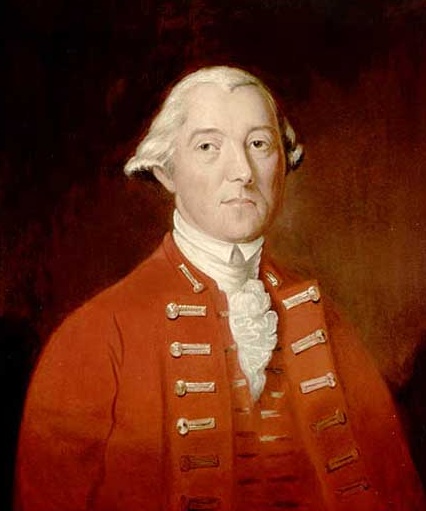Guy Carleton was commander of British troops during the American War of Independence, specifically leading the defense during the Battle of Quebec. Carleton was also responsible for the safe removal of the Tories and freed slaves who joined the British.
Guy was born in Ireland, September 1724. His education was limited. He and his brother Timothy would both grow up to serve in the British military.

General Sir Guy Carleton
Public domain image
At age 17, he joined the 25th regiment, and within 3 years he made Lieutenant. He fought in Flanders and France in several different battles. In 1751, he joined the 1st foot Guards and finally got promoted to Captain after years of frustrated struggle to rise in the ranks. His career took a sudden and welcome turn upward when he was chosen to act as a guide to the Duke of Richmond, who took a shine to Guy Carleton and became his patron.
Six years later, he was made Lieutenant Colonel and served as part of a troop protecting Hanover from French invasion. In 1758, his friend James Wolfe was made Major General and was given command of the campaign in Quebec. He selected Guy Carleton as his quarter-master general.
In 1772, he married Maria Howard, 29 years younger than his 48 years.
He served in different military capacities and even a few political ones until the start of the rebellion in 1775. He began to try raising a militia after hearing of a raid on nearby Siege of Fort St. Jean, however he had some difficulty because the native French and British didn’t want to fight in the beginning. Carleton refused to fight with the Indians in Canada because he feared they’d turn on him. He spent the summer of 1775 building up the fort’s defenses, but when it fell in November, he had to escape by disguising himself as a commoner.
He then directed the city’s defenses in the Siege of Quebec until John Burgoyne arrived with reinforcements. He commanded a British force in several battles, fighting so well that an island he’d taken was named Carleton’s Prize.
However, in spite of his victories, British forces received news that the United States would be granted its freedom. Carleton was then designated to help relocate the Tories who were fleeing back to the King‘s protection and the slaves offered freedom for fighting for the British. The Americans demanded Carleton return the slaves to their rightful owners, but he refused, instead offering to keep a registry, now called the “Book of Negroes” so that owners could be paid recompense. As far as is known, the Americans never received any.
He returned to England and served as Governor-in-Chief of British North America and Governor of Quebec, New Brunswick, Nova Scotia and St. John’s Island. He was promoted to Lord Dorchester, fooon of Dorchester. He sat in the House of Lords, and eventually returned to Canada where he retired and eventually died.


